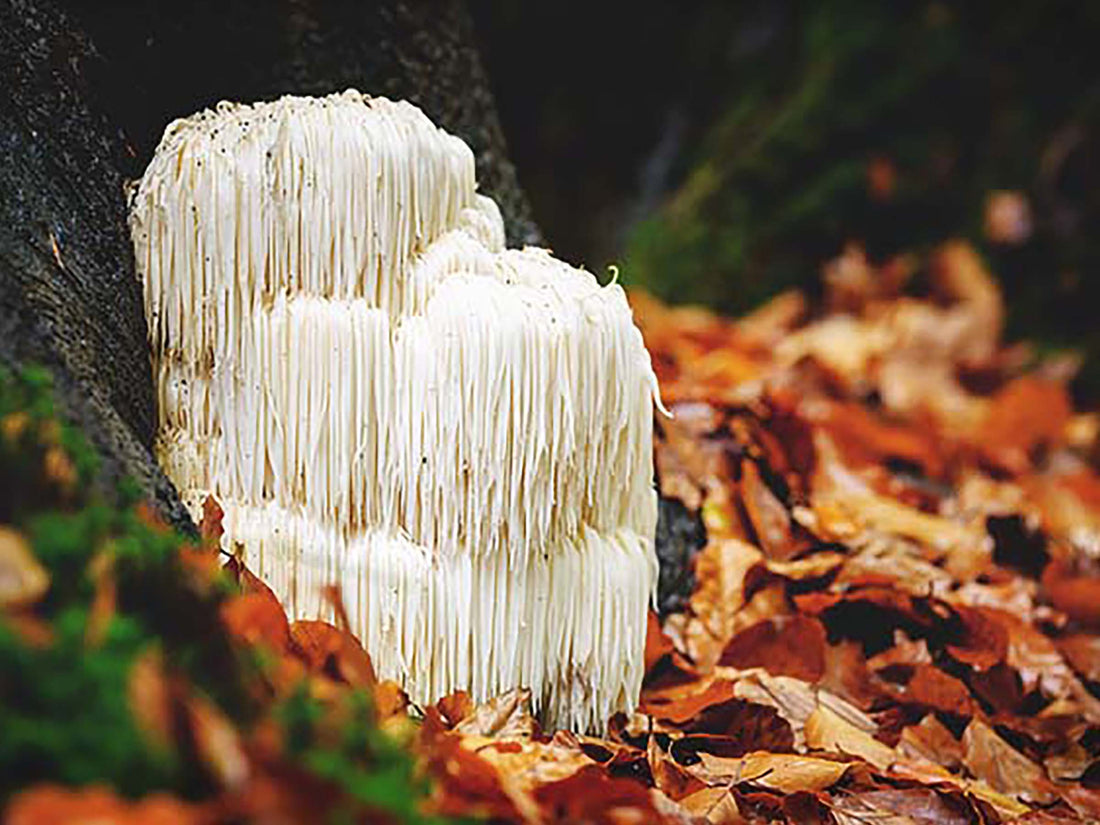
Here are a few of the many benefits of Lion's Mane Mushroom.
Share
Lion's mane mushroom (Hericium erinaceus) is a type of edible, medicinal mushroom known for its unique appearance, resembling a lion's mane. It has been used for centuries in traditional Chinese and Japanese medicine, and more recently, it has gained popularity worldwide due to its potential health benefits. Here are some benefits associated with lion's mane mushroom:
-
Cognitive function: Lion's mane mushroom is often touted for its potential to enhance brain health and cognitive function. It contains compounds called hericenones and erinacines, which have been shown to stimulate the growth of nerve cells and promote the production of nerve growth factor (NGF) in the brain. NGF is essential for the maintenance and survival of neurons, and it plays a crucial role in learning, memory, and overall cognitive function.
-
Memory and focus: By promoting NGF production and supporting brain health, lion's mane mushroom may improve memory and enhance focus and concentration. Some studies suggest that regular consumption of lion's mane extract or supplements may help prevent age-related cognitive decline and neurodegenerative disorders such as Alzheimer's and Parkinson's diseases.
-
Nervous system support: Lion's mane mushroom has neuroprotective properties, which means it may help protect the nervous system from damage caused by oxidative stress and inflammation. Its anti-inflammatory and antioxidant effects can potentially benefit conditions such as multiple sclerosis, peripheral neuropathy, and other neurological disorders.
-
Mood and mental well-being: Preliminary research suggests that lion's mane mushroom may have antidepressant and anxiolytic (anti-anxiety) effects. By promoting NGF production and supporting brain health, it may help regulate mood, reduce symptoms of anxiety and depression, and improve overall mental well-being.
-
Digestive health: Lion's mane mushroom contains bioactive compounds that may support digestive health. It has been traditionally used to alleviate gastrointestinal issues, such as ulcers and gastritis. Some studies show that lion's mane may help protect the stomach lining, reduce inflammation in the digestive system, and improve gut health.
-
Immune system support: Certain components of lion's mane mushroom, such as polysaccharides and beta-glucans, have immune-boosting properties. They may help enhance the activity of immune cells, increase the production of protective antibodies, and improve overall immune function.
-
Anti-inflammatory and antioxidant effects: Lion's mane mushroom contains various bioactive compounds with potent anti-inflammatory and antioxidant properties. These properties may help reduce chronic inflammation in the body, neutralize harmful free radicals, and protect against oxidative stress-related damage.
It's important to note that while lion's mane mushroom shows promising potential, more research is needed to fully understand its benefits and establish optimal dosage recommendations.
As with any supplement or natural remedy, it's advisable to consult with a healthcare professional before incorporating lion's mane mushroom into your routine, especially if you have any existing health conditions or are taking medications.